How to Build Equity
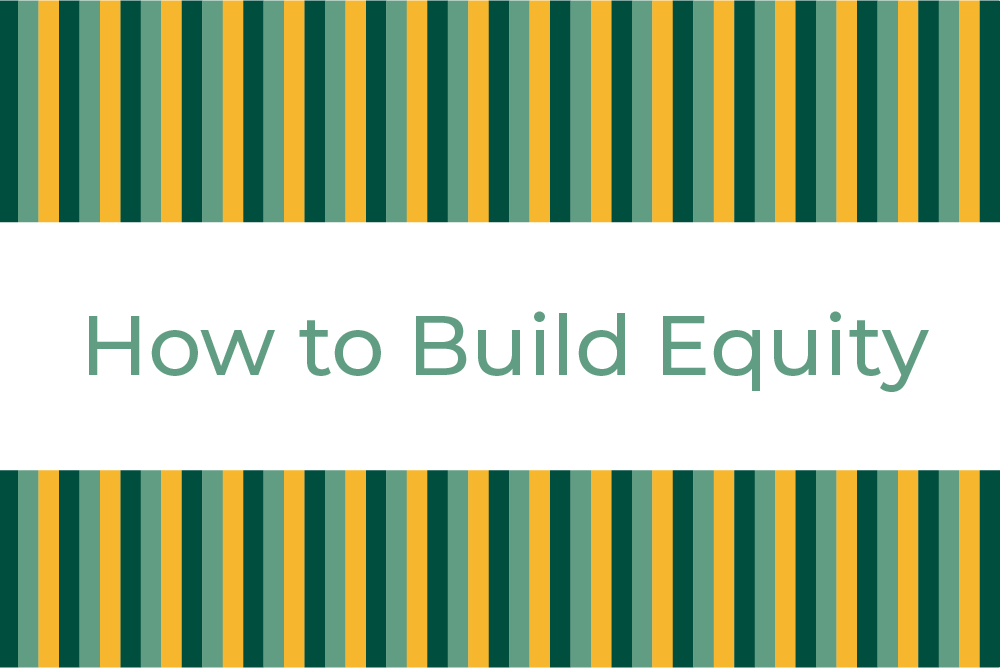
Building equity in a home is important, and it’s one of the main benefits of buying a house. Equity is essential for financial security, and it can also be used for other life expenses such as financing a child’s college tuition or performing other work on the home like remodeling your current home or purchasing a second home. It can also be used as a cushion in retirement. This all sounds good, you’re probably thinking, so it’s time to learn more about what equity is and how you can build equity.
What is Equity?
Before you can begin to build equity in a home, you’ll need to learn more about what it is and how it can help. Equity in a home is the difference between your mortgage balance and the value of the home. If you don’t know one or both numbers off the top of your head, it’s easy to calculate equity using a home equity loan calculator.
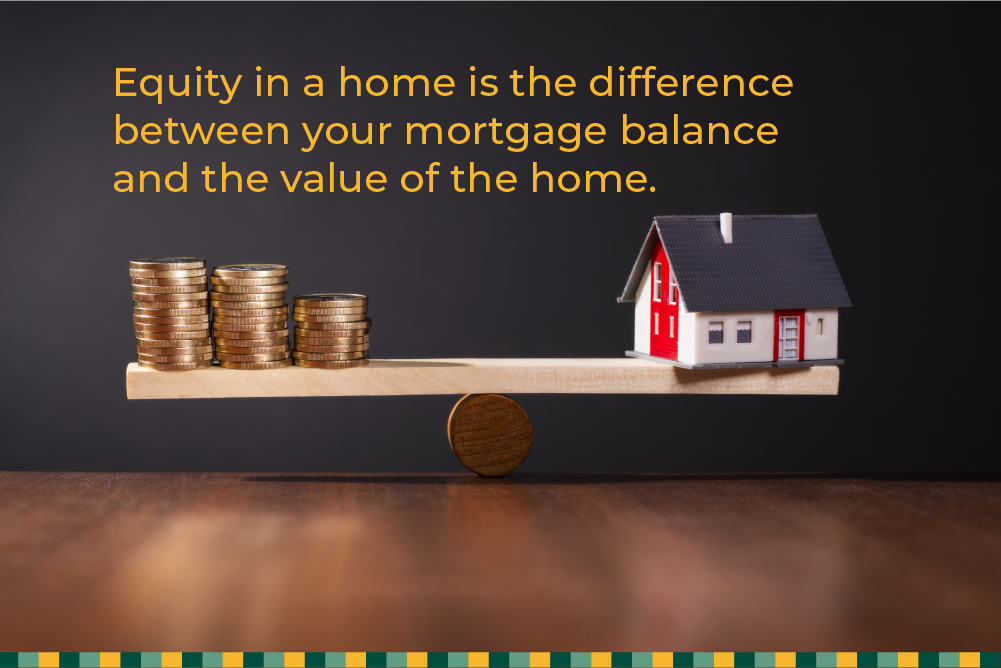
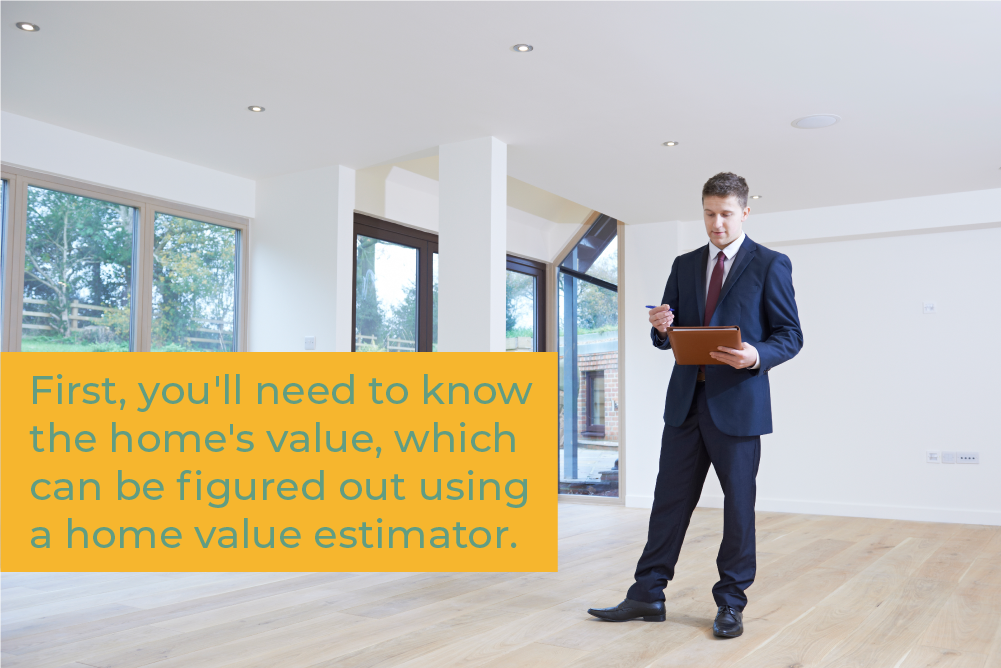
How to Find Equity
When you start trying to figure out your current equity, you will need two critical pieces of information. First, you’ll need to know the home’s value, which can be figured out using a home value estimator. Alternatively, you can contact a local real estate agent to get an estimate of how much comparable homes in the area cost. The second piece of information is your mortgage balance. The loan balance can be found on your mortgage statement. To find out how much equity you have, simply subtract the mortgage balance from the value of your home.
How to Build Equity in a Home
If you want to build equity faster, consider these 10 steps:
- Make a large down payment
- Choose a shorter term
- Pay extra if possible
- Choose the best rates
- Make home improvements
- Don’t get mortgage insurance
- Pay closing costs for refinancing out of pocket
- Purchase mortgage points
- Avoid government loans
- Steer clear of HELOCs and home equity loans
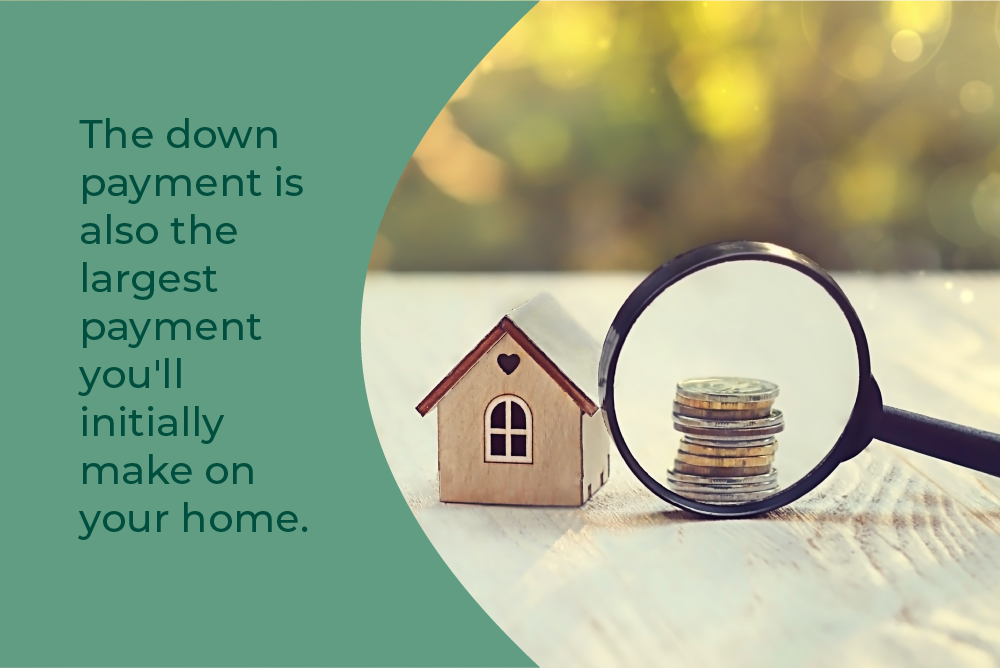
When you buy a home, one of the first payments you will make is the down payment. The down payment is also the largest payment you’ll initially make on your home. For most home loans in Las Vegas, the average down payment is 20%. Some loans, such as government-backed loans, may let you make a down payment of 10% or less. However, while there is a minimum loan requirement based on the loan you get, you can always put down more than the minimum amount required. Aside from paying off a loan sooner, one of the advantages of making a larger down payment is that you’ll have more equity to start.
Mortgages in Las Vegas vary in length. While it may be tempting to go with a longer 30-year mortgage that has lower monthly payments, a 15-year mortgage might ultimately be a better option if you want to build equity faster. You can whittle away at your loan balance more quickly if you opt for the shorter-term mortgage as well, which in turn gives you more equity. Additionally, you can potentially save thousands of dollars in interest fees. To provide an example of where you might stand after five years with a 15-year mortgage versus a 30-year mortgage, if you start with a home that costs $250,000 and pay a mortgage rate of 2.75% with a 15-year term compared to 3.25% with a 30-year term, you’ll have home equity of $89,233.11 with the 30-year loan term and $134,684.70 with the 15-year term. (Here are some of the most common mortgage top FAQs.)
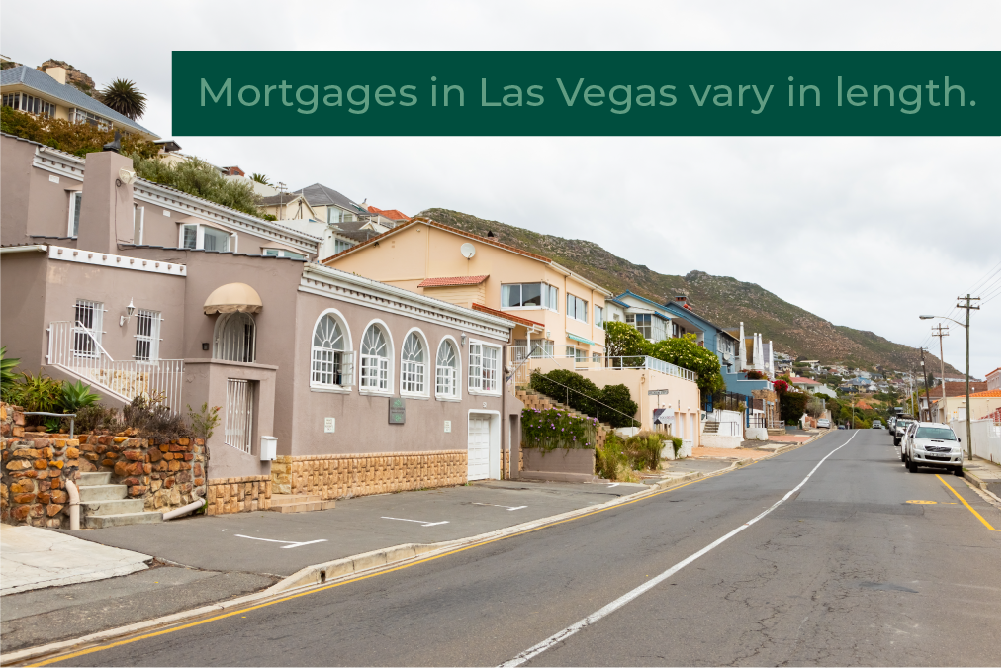
If you can, making extra payments on mortgages in Las Vegas can help generate equity. If you are hesitant to put more income towards a mortgage payment, consider using money from other sources instead such as bonuses from work, tax refunds, or any other money you might receive as a gift. Scheduling biweekly monthly payments is an excellent way to make sure that you continue to make extra payments. Setting up a bimonthly loan payment arrangement can reduce your loan by several years and lower the total balance sooner.
In some ways, choosing mortgage brokers in Las Vegas is much like buying a car. You don’t have to choose the first one that you see! To get the most favorable mortgage rates possible, you should aim to look at rates from at least 3-5 lenders. Finding a lender with the lowest rates can save up to thousands of dollars over the course of the loan’s lifetime. You may also end up paying less in interest rates, which means you can direct more of your monthly loan payments towards paying off the balance rather than the interest. When you add up the cost savings over 10, 15, 20 years or more, you will find that you can gain quite a bit more in equity by choosing mortgage brokers in Las Vegas that offer lower rates.
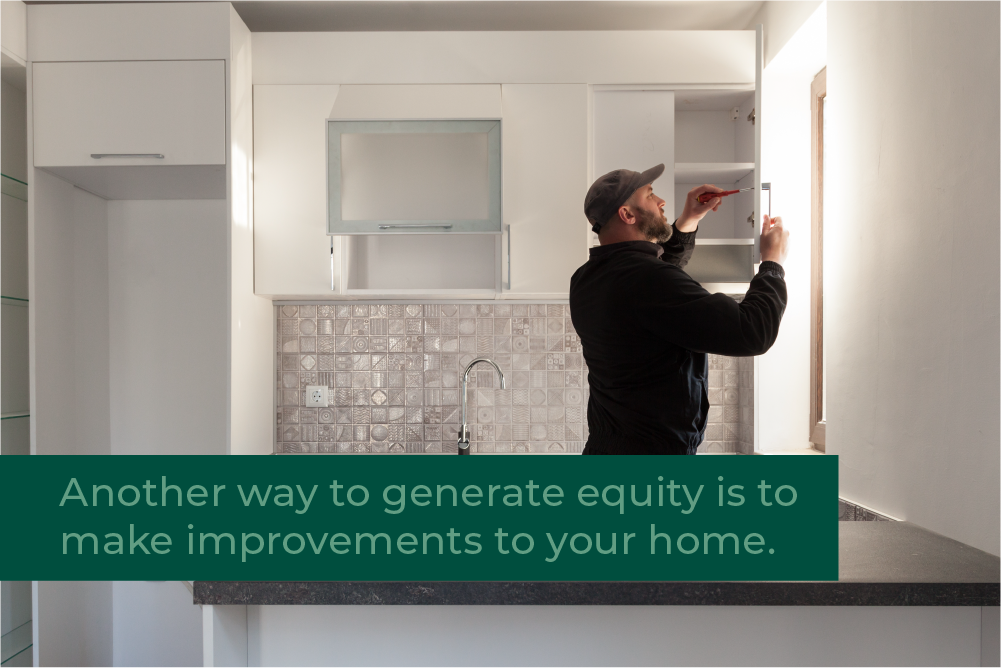
Another way to generate equity is to make improvements to your home. While you might be nervous about spending money to make updates on your home, you will find that adding value to your home pays off. Before you get started, do some research to find out what price home buyers are willing to pay for homes in the area. You can also do a cost vs. value comparison based on your zip code to find out how much people are willing to pay compared to the home’s worth.
Another good reason to improve your home is that if you don’t have a comfortable amount of cash available to make the improvements, you might be able to borrow money by using home loans in Las Vegas for improvements. A popular option is the FHA 203(k) home loan program, which allows you to finance improvements to your house using a mortgage depending on the projected value of the home when the construction is finished.
While it might sound counterintuitive to avoid insurance, you should steer clear of mortgage insurance if you are looking to build equity. Mortgage insurance, unlike home insurance, does not protect against damage or loss to your home. Instead, it only protects the lender in case you default on the loan and a foreclosure becomes necessary. If you make a down payment of less than 20%, you are typically required to get mortgage insurance.
If you decide to refinance your home, one way to build equity is to pay for the costs of refinance closing out of pocket. Refinancing gives you the option of replacing your current mortgage with a new mortgage at a reduced rate or a shorter term. You can also choose to get a different loan. Closing costs are generally in the range of 2% – 6%, but you will need to use equity to pay for them unless you pay out of pocket.
Building equity is also possible by paying mortgage points in order to lower your interest rates. This is a good option for homeowners who have extra savings in the bank.
When looking for a loan, try to avoid getting government-backed mortgages in Las Vegas if you can. Loans backed by the government often come with caveats such as funding fees or mortgage insurance, which may ultimately negatively impact your home equity.
A home equity line of credit (HELOC) and a home equity loan should also be avoided. Otherwise, your equity will be lowered by the amount of money that you borrow. Closing costs with either loan can range from 2% – 5%, which may negatively affect equity.
Contact a professional loan officer today if you want to learn more about equity and how to start building equity in a home.








